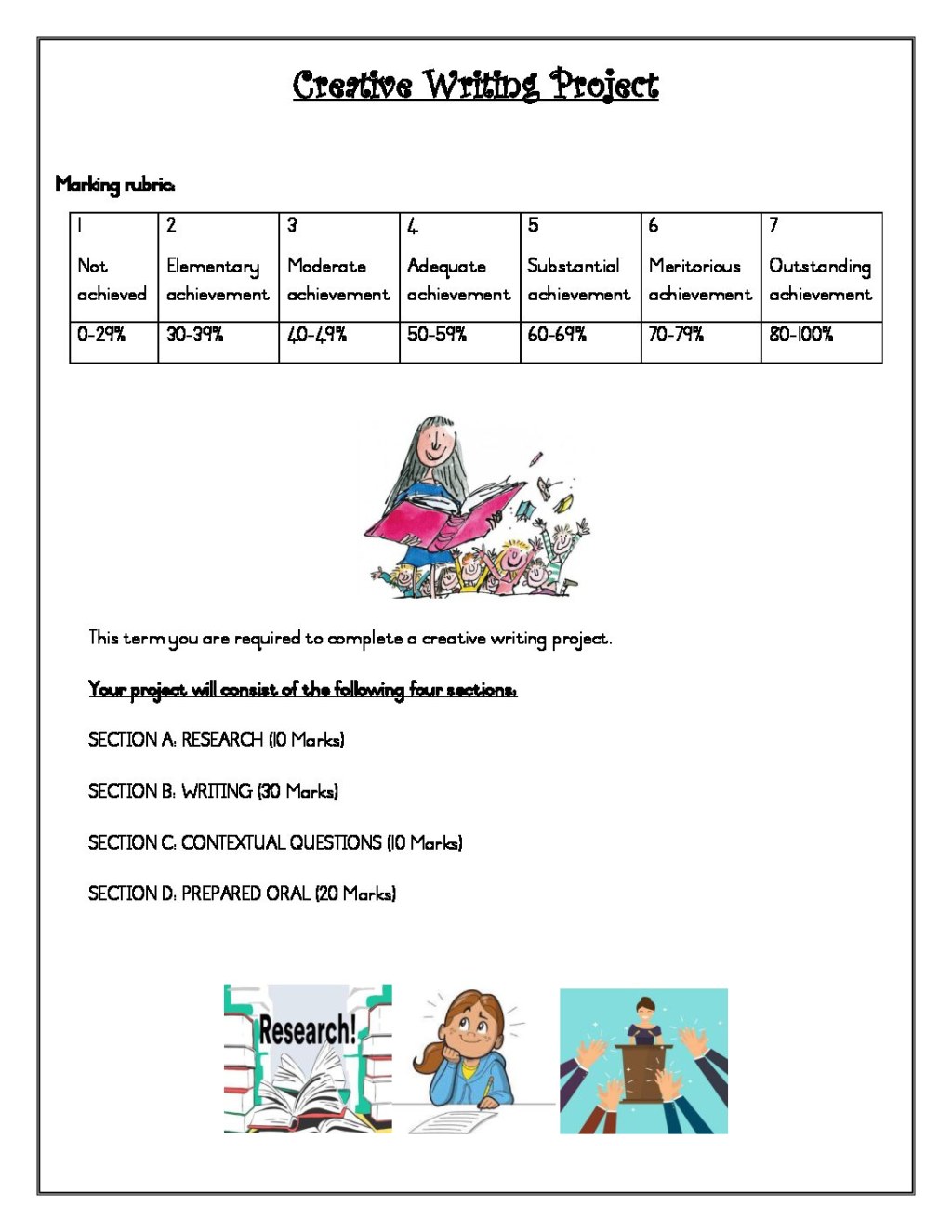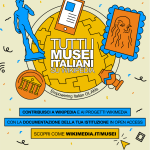Unleash The Imagination: Enriching Creative Writing Skills For Sixth Graders
Creative Writing in Sixth Grade: Unleashing Imagination and Developing Writing Skills
Greetings, Readers! In this article, we will delve into the fascinating world of creative writing in sixth grade. As students transition into their pre-teen years, creative writing becomes an essential tool for self-expression and honing their language skills. Through various writing exercises and assignments, sixth-grade students can explore their imagination, enhance their vocabulary, and develop their writing prowess. Let’s dive in and discover the wonders of creative writing for sixth graders.
What is Creative Writing in the Sixth Grade?
In the sixth grade, creative writing refers to the art of crafting original stories, poems, and essays using imaginative and innovative ideas. It encourages students to express their thoughts, emotions, and experiences through the written word. By exploring various genres and writing styles, students can develop their unique voice and storytelling abilities.
1 Picture Gallery: Unleash The Imagination: Enriching Creative Writing Skills For Sixth Graders

Unleashing Imagination through Writing Prompts
Writing prompts play a crucial role in stimulating the imagination of sixth-grade students. These prompts can be in the form of open-ended questions or specific scenarios that encourage students to think creatively and develop their ideas. By immersing themselves in these prompts, students can let their imagination run wild and create compelling narratives.
Exploring Different Genres
Another exciting aspect of creative writing in the sixth grade is the exploration of different genres. Students get the opportunity to experiment with various forms of writing, such as realistic fiction, historical fiction, fantasy, and more. This exploration allows them to discover their preferences and develop a well-rounded understanding of different writing styles.
Developing Writing Skills
While creative writing focuses on imagination, it also plays a vital role in developing essential writing skills. Sixth-grade students learn to construct well-structured sentences, utilize appropriate grammar and punctuation, and enhance their vocabulary. By regularly practicing creative writing, students can improve their overall communication skills, which are essential for success in various academic disciplines.
Who Can Benefit from Creative Writing in the Sixth Grade?

Image Source: teacharesources.com
Creative writing is beneficial for all sixth-grade students, regardless of their writing abilities. It provides a platform for students to express themselves and build confidence in their writing skills. Additionally, creative writing can benefit students who struggle with traditional academic writing by offering a more engaging and interactive approach to language development.
Enriching High-Achieving Students
For high-achieving students, creative writing offers an outlet for their advanced language skills and allows them to push the boundaries of their creativity. These students can explore complex themes, experiment with advanced writing techniques, and challenge themselves to create thought-provoking pieces.
Empowering Reluctant Writers
On the other hand, creative writing can be particularly empowering for reluctant writers. By providing a more relaxed and less rigid approach to writing, students who struggle with expressing themselves can find solace in creative writing. It allows them to overcome any writing anxiety and embrace their uniqueness as writers.
Fostering Collaborative Learning
Creative writing also fosters collaboration and peer learning. Students can engage in group activities, such as brainstorming sessions and peer editing, where they can exchange ideas and provide constructive feedback to their peers. This collaborative environment encourages teamwork and empathy, creating a supportive community of young writers.
When and Where Can Creative Writing Take Place?
Creative writing can take place both inside and outside the classroom. In school, it can be integrated into the language arts curriculum, where dedicated time is allocated for students to explore their creative writing abilities. Additionally, extracurricular activities, such as writing clubs and workshops, provide opportunities for students to further enhance their skills in a more informal setting.
Integrating Creative Writing in the Classroom
In the classroom, creative writing activities can be incorporated during dedicated writing periods or as part of literature studies. Teachers can introduce writing prompts, guide students through the writing process, and provide constructive feedback to help them refine their work. This structured approach ensures that students receive guidance and support in their creative writing endeavors.
Extracurricular Writing Clubs and Workshops
Outside the classroom, writing clubs and workshops offer a creative space for students to explore their writing outside the confines of academia. These clubs often provide a supportive environment where students can share their work, receive feedback from peers and mentors, and participate in writing challenges and competitions. Such extracurricular activities foster a love for writing beyond the traditional classroom setting.
Why is Creative Writing Beneficial for Sixth Graders?
Creative writing offers numerous benefits for sixth-grade students, both academically and personally. Let’s explore why creative writing is highly beneficial for students at this stage of their education.
Enhanced Language Skills
Through creative writing, students develop their language skills by expanding their vocabulary, understanding grammar concepts, and practicing effective communication. By engaging in creative writing activities, students become more confident in expressing their ideas and thoughts in a coherent and articulate manner.
Critical Thinking and Problem-Solving
Creative writing fosters critical thinking and problem-solving skills. When faced with writing challenges, students learn to think outside the box, analyze situations from different perspectives, and develop innovative solutions to overcome obstacles in their narratives. These skills are invaluable not only in writing but also in various other aspects of life.
Imagination and Self-Expression
One of the primary benefits of creative writing is nurturing students’ imagination and allowing them to express their thoughts and emotions freely. Creative writing provides an outlet for self-reflection and self-expression, allowing students to explore their imagination and develop their unique voice as writers.
Empathy and Perspective-Taking
When crafting stories and characters, students are encouraged to step into different perspectives and empathize with their fictional creations. This process helps students develop empathy and a deeper understanding of human emotions and experiences, fostering compassion and tolerance.
Personal Growth and Self-Confidence
Engaging in creative writing allows students to witness their growth as writers over time. By setting goals, receiving feedback, and continuously improving their writing, students develop a sense of accomplishment and boosted self-confidence. This newfound confidence extends beyond writing and positively impacts other areas of their academic and personal lives.
How Can Teachers and Parents Support Creative Writing in the Sixth Grade?
Both teachers and parents play a critical role in supporting and encouraging creative writing in the sixth grade. By implementing the following strategies, educators and caregivers can foster a nurturing environment that promotes creativity and enhances students’ writing skills.
Provide Writing Prompts
Teachers and parents can offer a variety of writing prompts to spark students’ imagination. These prompts can range from specific topics to open-ended questions, allowing students to explore various themes and genres.
Offer Constructive Feedback
Feedback is crucial for students to grow as writers. Teachers and parents should provide constructive feedback on students’ written work, highlighting their strengths and offering suggestions for improvement. This feedback should focus on both content and mechanics, encouraging students to refine their writing skills continuously.
Encourage Reading
Reading and writing go hand in hand. Teachers and parents should encourage sixth-grade students to read diverse literature to expand their vocabulary, enhance their understanding of different writing styles, and gain inspiration for their own writing projects.
Promote Peer Collaboration
Collaborative activities, such as peer editing and group discussions, foster a sense of community and provide opportunities for students to learn from one another. Teachers and parents should encourage students to work together, share their ideas, and provide constructive criticism to help each other improve their writing skills.
Create a Safe and Supportive Environment
A safe and supportive environment is essential for students to feel comfortable expressing themselves through writing. Teachers and parents should create an atmosphere that encourages creativity, celebrates individuality, and instills confidence in students’ writing abilities.
The Pros and Cons of Creative Writing in the Sixth Grade
Advantages of Creative Writing
1. Enhanced Language Skills: Creative writing helps students develop a strong command of language, expanding their vocabulary and improving their grammar and syntax.
2. Improved Communication: Through creative writing, students learn to express their thoughts and ideas effectively, enhancing their overall communication skills.
3. Self-Expression and Emotional Development: Creative writing provides an outlet for students to express their emotions, experiences, and unique perspectives.
4. Critical Thinking and Problem-Solving: Crafting stories and developing characters require students to think critically, analyze situations, and develop creative solutions.
5. Personal Growth and Self-Confidence: Engaging in creative writing nurtures self-confidence and fosters personal growth as students witness their progress over time.
Disadvantages of Creative Writing
1. Time Management: Creative writing assignments may require additional time and effort, which can be challenging for students who struggle with managing their workload.
2. Grammar and Spelling Mistakes: Students may overlook grammar and spelling errors while focusing on their creative ideas, which can hinder their overall writing quality.
3. Lack of Structure: Creative writing allows for more freedom, but some students may struggle without clear guidelines and structure.
4. Limited Assessment Criteria: Evaluating creative writing can be subjective, making it challenging for teachers to provide concrete grading criteria.
5. Difficulty in Critiquing and Revising: Providing feedback on creative writing can be tricky, as it involves balancing constructive criticism with encouraging creativity.
Frequently Asked Questions (FAQs)
1. Can creative writing in the sixth grade improve academic performance?
Yes, creative writing can improve academic performance by enhancing language skills, critical thinking abilities, and communication proficiency.
2. Will creative writing help my child become a better writer?
Absolutely! Engaging in regular creative writing activities can significantly improve your child’s writing abilities, vocabulary, and overall communication skills.
3. How can I motivate my child to write creatively?
Encourage your child to write about topics they are passionate about, provide positive feedback, and create a comfortable writing environment that sparks their creativity.
4. Are there any career opportunities for students who excel in creative writing?
Yes, students with excellent creative writing skills can pursue careers in fields such as journalism, advertising, publishing, and content creation.
5. Can creative writing help with emotional well-being?
Absolutely. Creative writing provides a cathartic outlet for emotional expression, allowing students to explore their feelings and foster emotional well-being.
Conclusion: Unleash the Power of Creative Writing in Sixth Grade
Throughout this article, we have explored the many benefits and opportunities that creative writing offers to sixth-grade students. From enhancing language skills to fostering imagination and self-expression, creative writing plays a crucial role in their academic and personal development. By providing a platform for students to unleash their creativity, educators and parents can nurture a love for writing and empower students to become confident and proficient writers. So, let’s encourage our sixth graders to pick up their pens, unlock their imaginations, and embark on an exciting journey of creative writing!
Final Remarks
Disclaimer: The views and opinions expressed in this article are solely those of the author and do not necessarily reflect the official policy or position of any educational institution or organization. The information provided is for general informational purposes only and should not be considered as professional advice. Readers are advised to consult with a qualified educator or specialist for guidance on specific educational matters.
This post topic: Creative Writing

